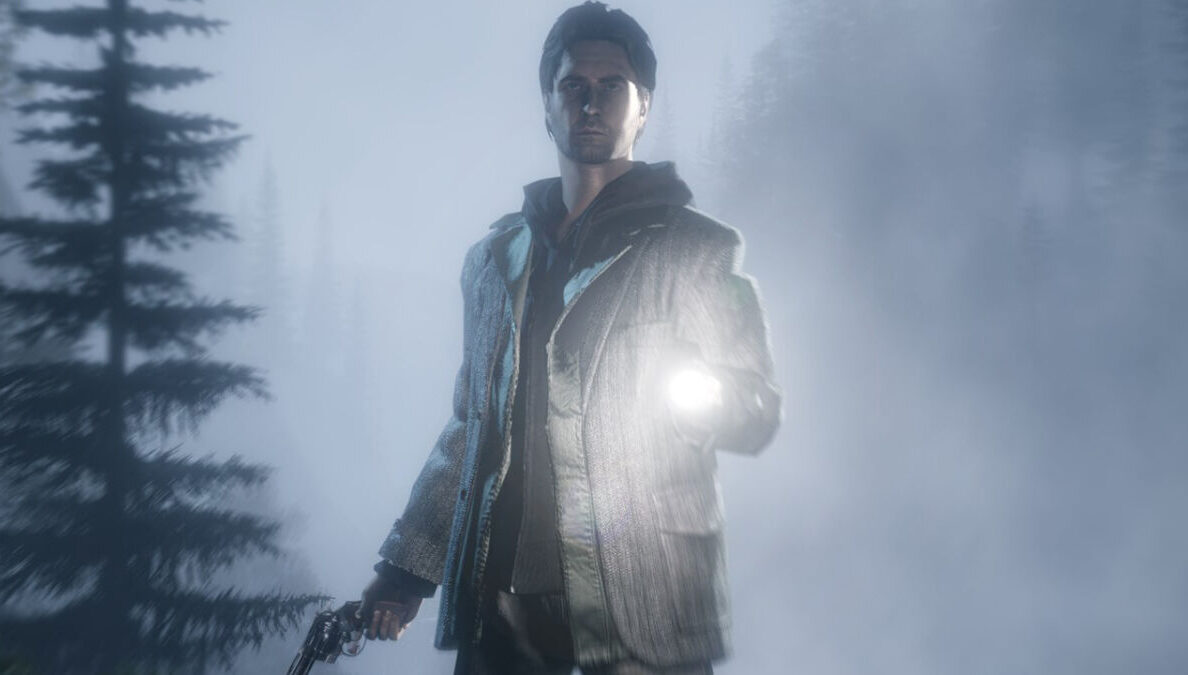With Halloween season upon us, I couldn’t help but longingly remember one of my favorite horror games of all time: Alan Wake. Considering Remedy’s upcoming remastered version, I thought this was the perfect time to craft an ode to what I believe to be a true masterpiece of a game.
Whenever I bring Alan Wake up with friends or even strangers, I’m often met with a level of indifference that doesn’t do this game any favors. Everyone’s a critic. It almost seems like your average video game enjoyer took the plot a bit too ad literam, while insisting that it was convoluted and confusing.
They’ll blame a lack of logic to the sequences and a missing closure to the story, while the whole point of this game will be buried under their way too analytical criticism. Each time, I will patiently suggest that Alan Wake is a metaphor.
Actually, it’s a cluster of metaphors, stacked one over the other, that expertly crafts a complete, flavourful and heart-wrenching picture of what it’s like to be human.
Needless to say, I barely have the time to cover any essential points before they lose interest, which is why I decided to take it all out, go the Alan Wake route and write my own story. Faced with a blank piece of paper, let’s draw inspiration from my profound appreciation and shed some light on what exactly makes Alan Wake special.
Yes, that pun was intended.
An Admiration For Flawless Execution
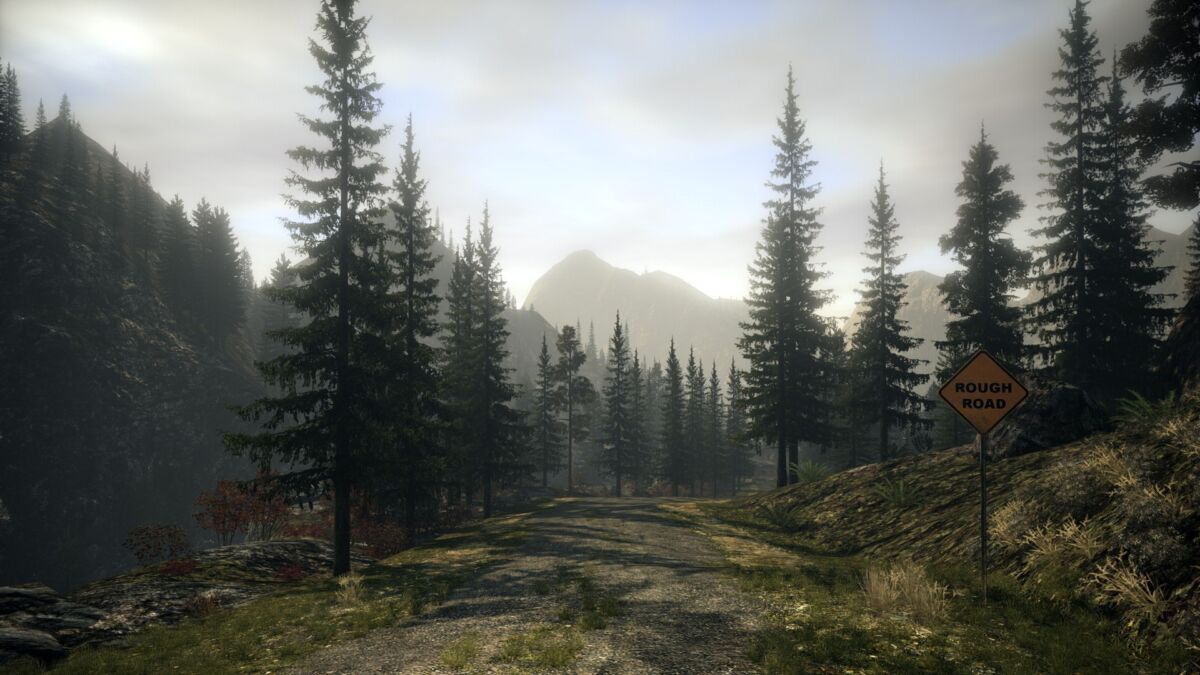
Right off the bat, let’s dive deeper into how this game came into being. Alan Wake plays like a completely different species; the heavy, deeply philosophical story written by Sam Lake doesn’t let it enter the simple third-person shooter category.
It’s definitely not dreadful enough to be considered a survival horror while also being too spectral, too sinister to fit the bill for the action-adventure genre. It’s safe to say that Alan Wake plays in a league of its own. Its originality and unique gameplay are two things you seldom encounter, which is why it cannot be categorized with any other game.
It deserves its place on a podium it built for itself.
Moreover, when faced with the eerie atmosphere of Bright Falls, many people will say: “Yes, I understand why Remedy took five years to finish this game.” Walking through the fictional town, an uncanny sense of dread follows your every step.
The foggy, darkness engulfed atmosphere was heavily inspired by The Twilight Zone and Twin Peaks and was tweaked to perfection by a team who wasn’t afraid to give 110%. For the David Lynch-esque town to emerge from their imagination, Remedy made several trips to the Pacific Northwest, where Twin Peaks and Lord of The Rings were filmed.
They researched ghost towns in the area, meticulously documented themselves on tornado behavior, and even looked into NASA star maps to ensure that the constellations were set in reality.
Fun Fact: Bright Falls was originally planned to be an open-world sandbox. But we would have had to wait another ten years for it.
A Case For Drawing Inspiration
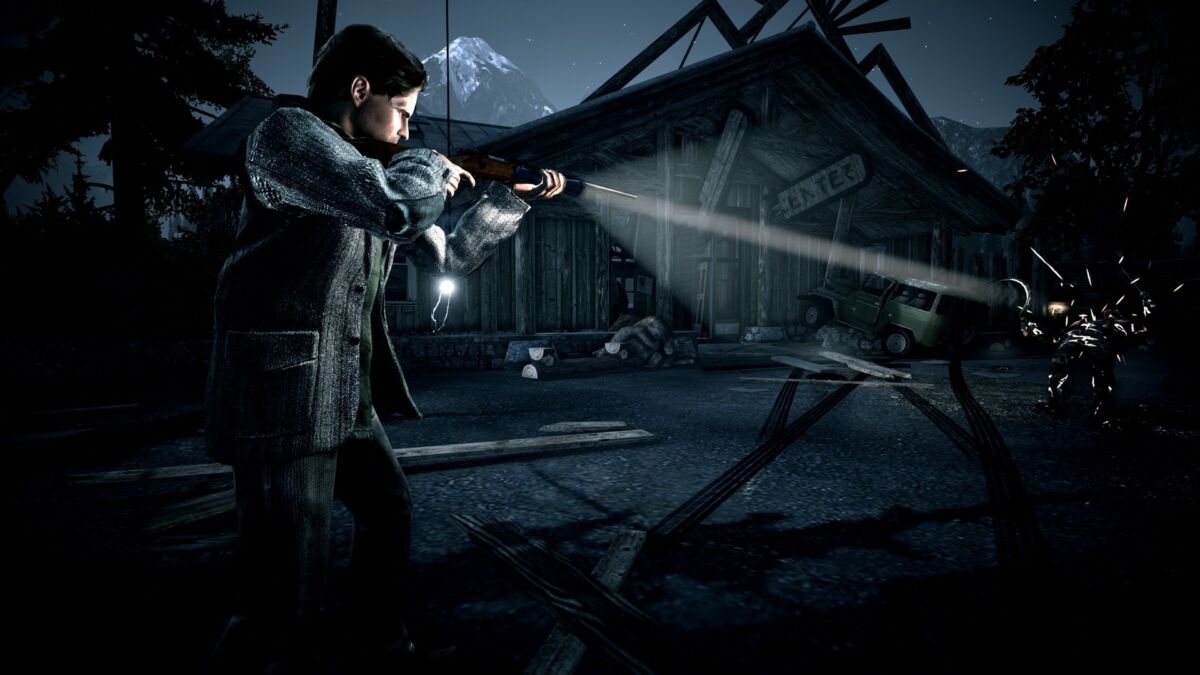
At its core, Alan Wake is a homage to art. It’s important to analyze how this game uses blatant inspiration from several other art mediums to create something of its own.
Everything in Alan Wake hints at something else, at other art forms. The game is brimming with cultural references to TV shows, movies, music, literature, and other video games, and it’s doing so absolutely blatantly – they aren’t meant to be easter eggs or fun little gimmicks, you don’t give a second thought to.
Bright Falls heavily takes after The Twilight Zone and Twin Peaks: the seemingly innocent Washington town in which eldritch events occur, the Oh Deer Diner referencing Double R Diner in Twin Peaks, Ranger Rusty complimenting the coffee just the way Dale Cooper does, the red thermos collectibles, and many, many more references and nods.
The game even follows an episodic structure, complete with “previously seen on” scenes.
The Dark Presence controlling people and the time loss events are obviously inspired by Lost, along with the light and darkness symbolism that’s crucial to the TV Shows.
The game is almost screaming at you that it derived inspiration from other artists, and that’s completely intentional. Various references to all forms of media seep the gameplay, weaving an appreciative showcase to some of the greatest pieces of art in modern history.
In addition, Bright Falls itself becomes an inspiration for a TV show you can catch on the in-game TVs – Night Springs. Not only is its name the complete opposite of Bright Falls, but there’s a scene in which the relationship between the two is strategically exposed.
“It’s a stupid joke we have, that Bright Falls is the original inspiration for the TV show. This town can get weird at times. Never this weird, though.”
The Ambiguous Thrill To Keep You Hooked
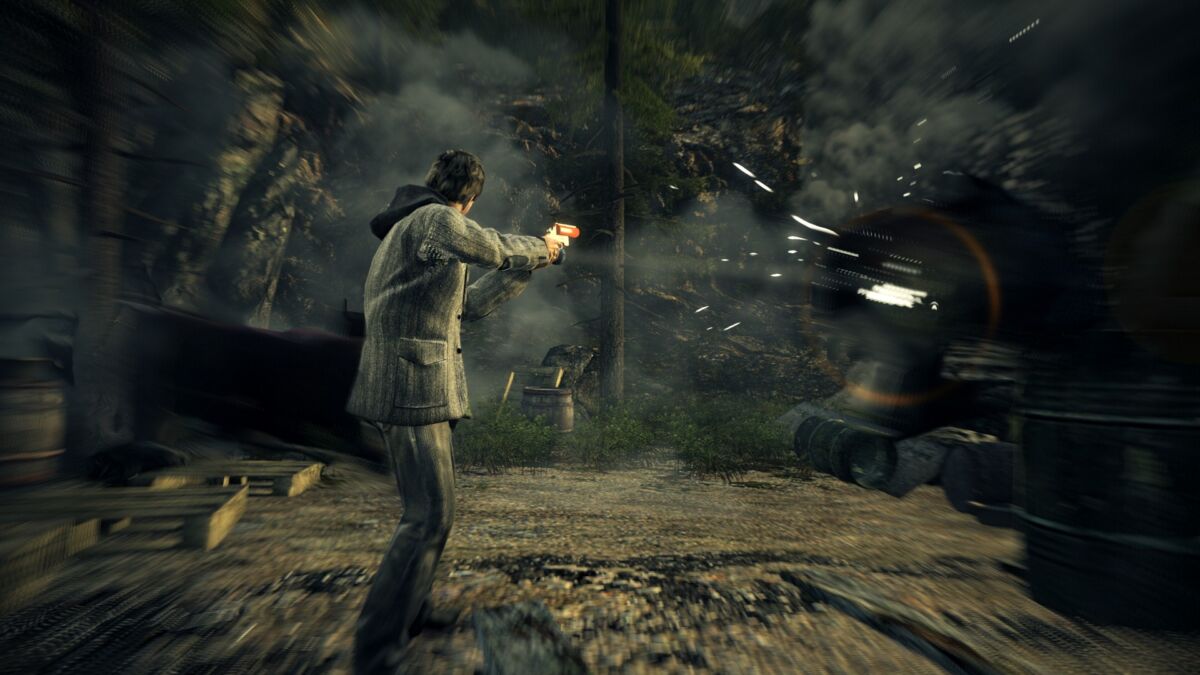
The greatest games are the ones that keep you wondering long after you’ve stepped away from the screen. Their immersive quality shouldn’t end the moment when you put down the controller, but rather persist at the periphery of your conscious mind. Just like a book plot will linger on in your psyche long after you’ve read the last page, a great game will infuse you with a delicate desire to return to the world it portrays.
In this aspect, Alan Wake takes the cake. Yes, this was intentional, too.
Heavily inspired by Stephen King’s work, Remedy’s game walks the fine line between psychological and supernatural. Its horror quality isn’t obvious; it doesn’t employ dead animal carcasses in a pentagram formation. It’s a lot more subtle, placing a bet on the fear of the unknown.
In my opinion, what takes this game from great to outstanding is its ability to capitalize on what wasn’t said out loud. Is Alan the innocent victim of a visceral evil, or is he schizophrenic? Is Bright Falls a little plot of Hell on Earth, or is he the conduit of terror, killing its sinless inhabitants?
The game begins with a quote from Stephen King, saying, “Nightmares exist outside of logic, and there’s little fun to be had in explanations; they’re antithetical to the poetry of fear.” I doubt any other opening could be so befitting, as Alan Wake’s frightening dimensions can only reside in a place void of any questions.
With such a perfect opening to pave the way towards this story, we could only make do with a matching finale. And that’s exactly what we received, with the game finishing on a period. A delightful ending to a story about stories, but is it? In a couple of seconds, the period transforms into an ellipsis, leaving way for terror to blossom in uncertainty.
An Adventure Into The Human Psyche
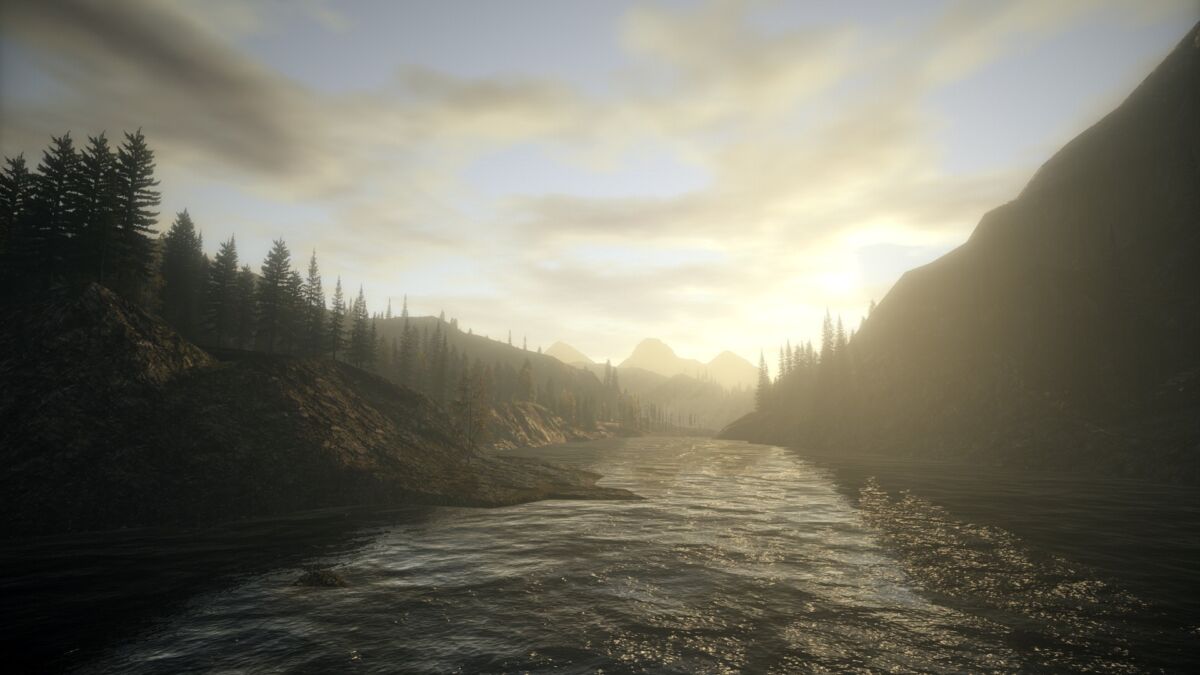
Art has many definitions, depending on who you ask. However, with some mental gymnastics and oversimplification, you could turn most of them into the same thing. Art is meant to be a tool for the acquisition of truth. It’s supposed to be a way of exploring human nature.
Through art, we reach new heights of knowledge regarding ourselves; we mirror the deepest parts of our psyche back to us, so we can gain a better understanding of what it means to be ourselves.
But art is the furthest thing from truth. Or better off, from the way we perceive truth. In itself, art is made of lies. The artist’s role is literally using lies to manipulate its audience into finding their own truth. Its paradoxical nature can be extrapolated to the heavy symbolism in Alan Wake.
The game is a story of light and dark, knowledge and ignorance, good and evil, perfectly balancing each other out to make a point. The way the very concept of art leverages both to bring us to a place of awareness regarding our very own nature.
This becomes increasingly apparent when you take a closer look at the Taken. The very mechanic that distinguishes Alan Wake from other shooter games, the need to shine a light on the Taken before they can be destroyed, is a beautiful metaphor for human consciousness.
The first step towards defeating something is shining light on it, revealing its true nature, and understanding it. The demons we face, our darkest thoughts and feelings vanish when you bring them forth, shine a light on them, let yourself feel them, and analyze them from a place of compassion.
A Writer’s Perspective On Art
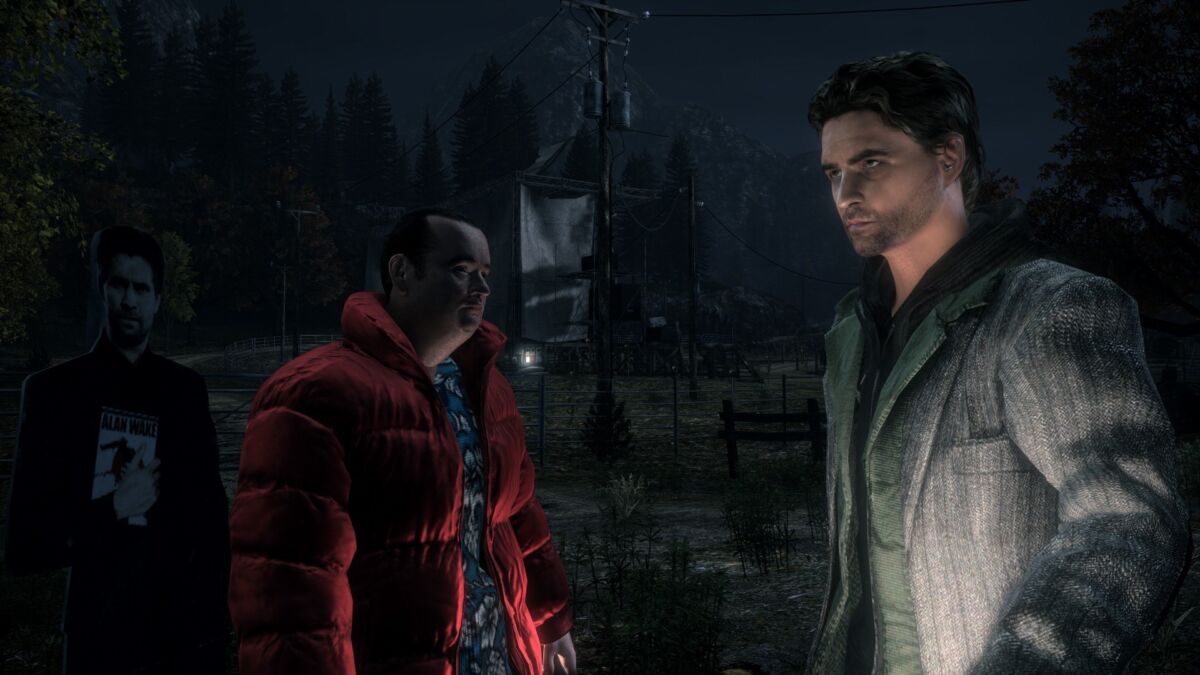
At its very core, Alan Wake is a story about art. Alan is an artist going through writer’s block; the story revolves around him writing Departure. The very reason why he’s in Bright Falls is the act of creation.
Alice was the one to push Alan out of his comfort zone and bring him to Bright Falls to encourage him to write. She is, through and through, his muse. His happy place. The proverbial light of his life. With her as a muse, he became a reputable writer, with fans left and right admiring his work. She pushed him and served as inspiration for his best work, which resonated with millions.
Although her bringing him to Bright Falls rubbed Alan the wrong way, she did so from a place of love, light, and realness.
On the other hand, the Dark Presence also served as Alan’s muse. She guided him to end the story from a place of fear, coercion. She also fueled his writing, but this time, the end result almost ended the world.
It’s a lovely metaphor for the process of creation. The stories Alan wrote, underpinned by Alice’s support and unconditional love, had lovely, positive results, while the story he wrote, inspired by fear, ignorance, and coercion, had a negative, annihilating twist.
Furthermore, a strong leitmotif in the game is Dr. Emil Hartman. He advertises psychological services for artists, which is why Alice brought Alan to Bright Falls in the first place. She believed he would cure her husband of his writer’s block.
However, later on in the game, we discover that Hartman’s motifs were malicious from the get-go. He institutionalizes artists and encourages them to create, only for him to steal the credit for their work. His character is a fantastic way of representing how some people appropriate others’ art for their own material gains, which has been a real, visceral issue for artists since the beginning of time.
On a lighter note, we are presented with Barry Wheeler, Alan’s editor, from the start of the game. The first impression he gives is that he’s hounding Alan for his next piece of work, with complete disregard for his well-being, as you would expect a greedy editor would do.
Throughout the game, this sentiment is replaced by a true appreciation for his character, as we begin to notice he’s a true friend of Alan’s.
We realize that despite his poking Alan for new ideas and his constant protests, he has the best interests at heart and is quick to travel to Bright Falls as soon as he senses Alan might need him. His friendship and unconditional support play a big role in Alan finding his inspiration again and wrapping up this story.
The very plot of this game, a fictional story becoming a reality, is a statement on how art can change the world in the ways it manifests. Alan Wake’s sinuous, enthralling use of metaphors helps position art as a way to explore the intricacies, truths, and candor of the human experience, while also warning us on how art can be misused in order to obscure the truth.
Why You Should Play Alan Wake
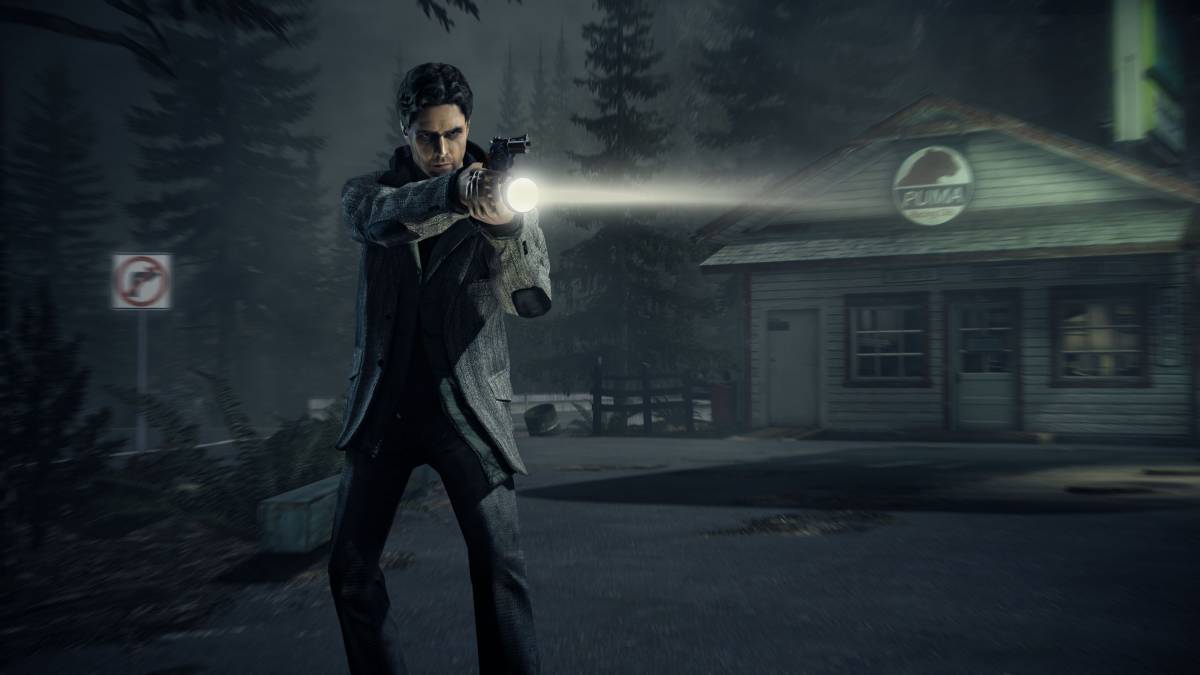
Please play this game. It provides such a lovely point of view on deep, philosophical matters and a truly unique game that took a lot of effort, time, and resources to make.
We shouldn’t let it be buried under the myriad of new, shiny titles when its very essence, its message, transcends time itself. With the upcoming remaster, we get a second chance at enjoying Alan Wake, with no compromise when it comes to the gaming experience.
Considering the fantastic plot, carefully crafted metaphors, and unique mechanics, there’ll never be a time when Alan Wake isn’t relevant to society, and there’s profound wisdom to be found in Bright Falls.
If only you know where to shine that flashlight.
READ NEXT: Alan Wake: Everything You Need To Know Before Control’s AWE DLC
Some of the coverage you find on Cultured Vultures contains affiliate links, which provide us with small commissions based on purchases made from visiting our site.


